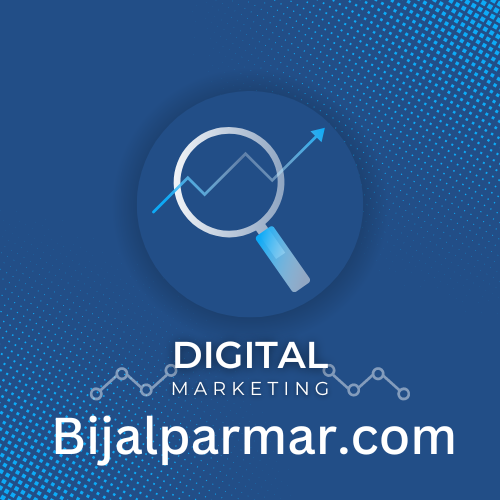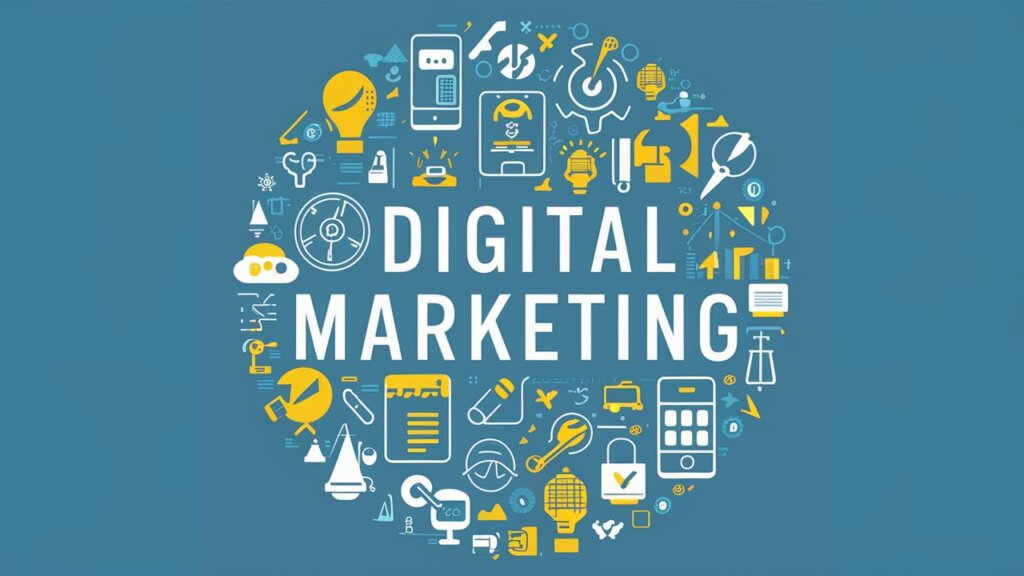Digital Marketing: Your Roadmap to Business Growth
What is Digital Marketing?
Digital marketing is the strategic process of promoting products or services through various online channels to attract, engage, and retain customers. It encompasses a wide range of tactics, including search engine optimization (SEO), social media marketing, content marketing, email marketing, pay-per-click (PPC) advertising, and more. In essence, it’s about connecting with your target audience where they spend their time online – on search engines, social media platforms, and other digital touchpoints.
The Evolution of Digital Marketing
Digital marketing has undergone a remarkable transformation since its inception. From humble beginnings as a simple online presence to the sophisticated, data-driven strategies of today, it has adapted to the ever-changing digital landscape.
- Early Days: The internet was primarily used for information sharing. Digital marketing focused on building basic websites and optimizing them for search engines.
- The Social Media Boom: Platforms like Facebook, Twitter, and Instagram revolutionized how businesses interacted with customers. Social media marketing became a cornerstone of digital strategies.
- Mobile Dominance: The proliferation of smartphones shifted focus to mobile optimization. Responsive design and mobile apps became essential for reaching on-the-go audiences.
- Data-Driven Era: Advancements in technology enabled businesses to collect and analyze vast amounts of data. Data-driven marketing became the norm, allowing for highly targeted and personalized campaigns.
- AI and Automation: Artificial intelligence and automation transformed various aspects of digital marketing, from content creation to customer service. These technologies streamlined processes and improved efficiency.
Key Components of Digital Marketing
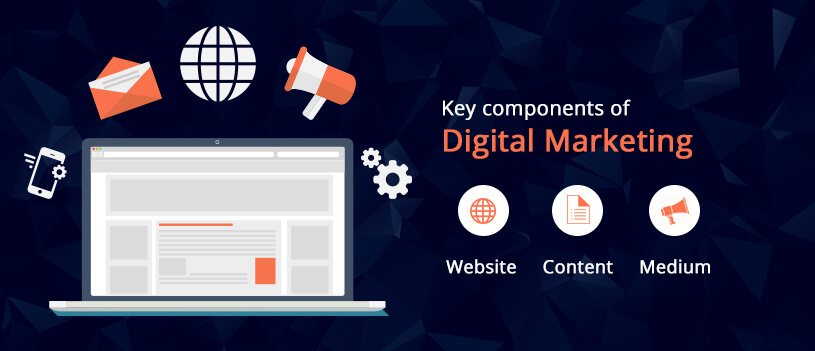
- Search Engine Optimization (SEO):
- Enhancing website visibility in organic search results.
- Optimizing content, keywords, and website structure.
- Building high-quality backlinks.
- Pay-Per-Click (PPC) Advertising:
- Creating and managing paid ads on search engines and social media platforms.
- Targeting specific keywords and demographics.
- Measuring performance and optimizing campaigns.
- Content Marketing:
- Creating and distributing valuable content to attract and retain a target audience.
- Blogging, video marketing, infographics, and social media posts.
- Building brand authority and generating leads.
- Social Media Marketing:
- Utilizing social media platforms to engage with customers and build brand awareness.
- Creating compelling content, running contests, and managing social media communities.
- Analyzing social media metrics to measure ROI.
- Email Marketing:
- Building and nurturing email lists.
- Sending targeted email campaigns to promote products, services, or content.
- Measuring open rates, click-through rates, and conversions.
- Affiliate Marketing:
- Partnering with other businesses to promote products or services.
- Earning commissions on sales generated through affiliate links.
- Influencer Marketing:
- Collaborating with influencers to reach a target audience.
- Leveraging the influencer’s credibility to promote products or services.
The Importance of Digital Marketing
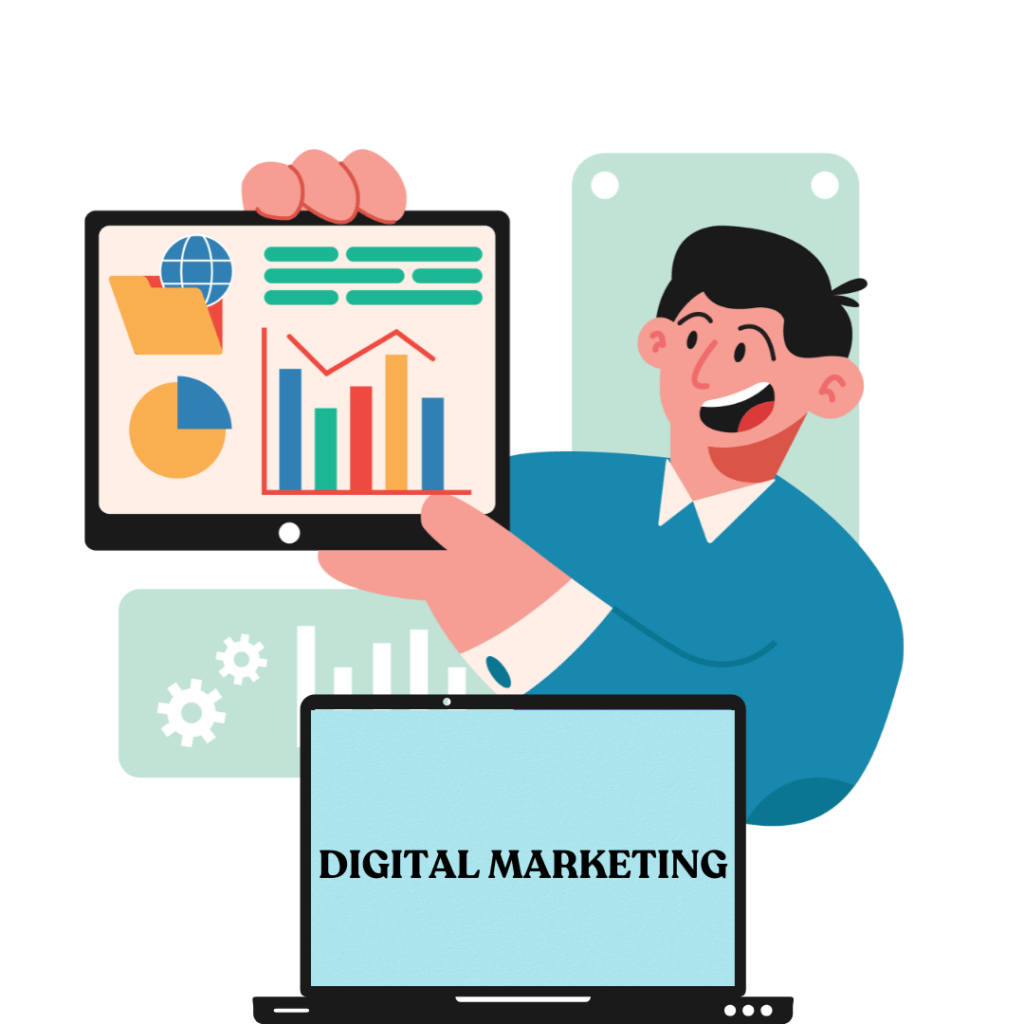
- Expanded Reach: Digital marketing transcends geographical boundaries, allowing businesses to connect with a global audience.
- Cost-Effectiveness: Often delivering a higher ROI compared to traditional marketing, digital marketing optimizes budget allocation.
- Measurable Results: Detailed analytics provide insights into campaign performance, enabling data-driven decision-making.
- Enhanced Customer Engagement: Interactive platforms foster direct communication and build stronger customer relationships.
- Competitive Advantage: Successful marketing strategies can differentiate businesses and drive market leadership.
Why Digital Marketing Should Be Your Go-To Strategy
Digital marketing is no longer a luxury; it’s a necessity for businesses of all sizes. Here’s why:
- Target Audience Precision: Digital marketing allows you to reach your ideal customers with laser-like precision, maximizing the impact of your campaigns.
- Cost-Efficiency: Compared to traditional marketing channels, digital marketing often offers more affordable options to reach your target audience.
- Measurable ROI: Tracking and analyzing campaign performance provides valuable insights into your marketing efforts’ effectiveness.
- Flexibility and Adaptability: Digital marketing allows you to quickly adjust your strategies based on changing market conditions and customer preferences.
- Competitive Edge: A strong digital presence can help you differentiate your business and gain a competitive advantage.
Challenges and Opportunities in Digital Marketing

While digital marketing offers immense potential, it also presents challenges:
- Staying Ahead of the Curve: The digital landscape evolves rapidly, demanding continuous learning and adaptation.
- Privacy Concerns: Data privacy regulations impact data collection and usage, requiring compliance.
- Algorithm Changes: Search engine and social media algorithm updates can significantly affect marketing strategies.
- Increasing Competition: The digital space is highly competitive, making it challenging to stand out.
- Measuring ROI: Attributing conversions to specific social media marketing channels can be complex.
However, these challenges also present opportunities for innovation and growth. By embracing emerging technologies, staying informed about industry trends, and focusing on delivering exceptional customer experiences, businesses can thrive in the digital age.
The Expanding Universe: Exploring the Scope of Digital Marketing
The realm of digital marketing is vast and continually expanding. Beyond the core components, there are numerous specialized areas to explore:
- Search Engine Marketing (SEM): Paid advertising on search engines to drive traffic to your website.
- Social Media Advertising: Paid advertising on social media platforms to reach a wider audience.
- Affiliate Marketing: Partnering with influencers or other businesses to promote products or services.
- Email Marketing Automation: Automating email campaigns for personalized customer interactions.
- Mobile Marketing: Optimizing marketing efforts for mobile devices.
- Video Marketing: Creating and distributing video content to engage audiences.
- Voice Search Optimization: Optimizing content for voice search queries.
- Augmented Reality (AR) and Virtual Reality (VR) Marketing: Immersive experiences to engage customers.
Benefits of Digital Marketing to Grow Your Business
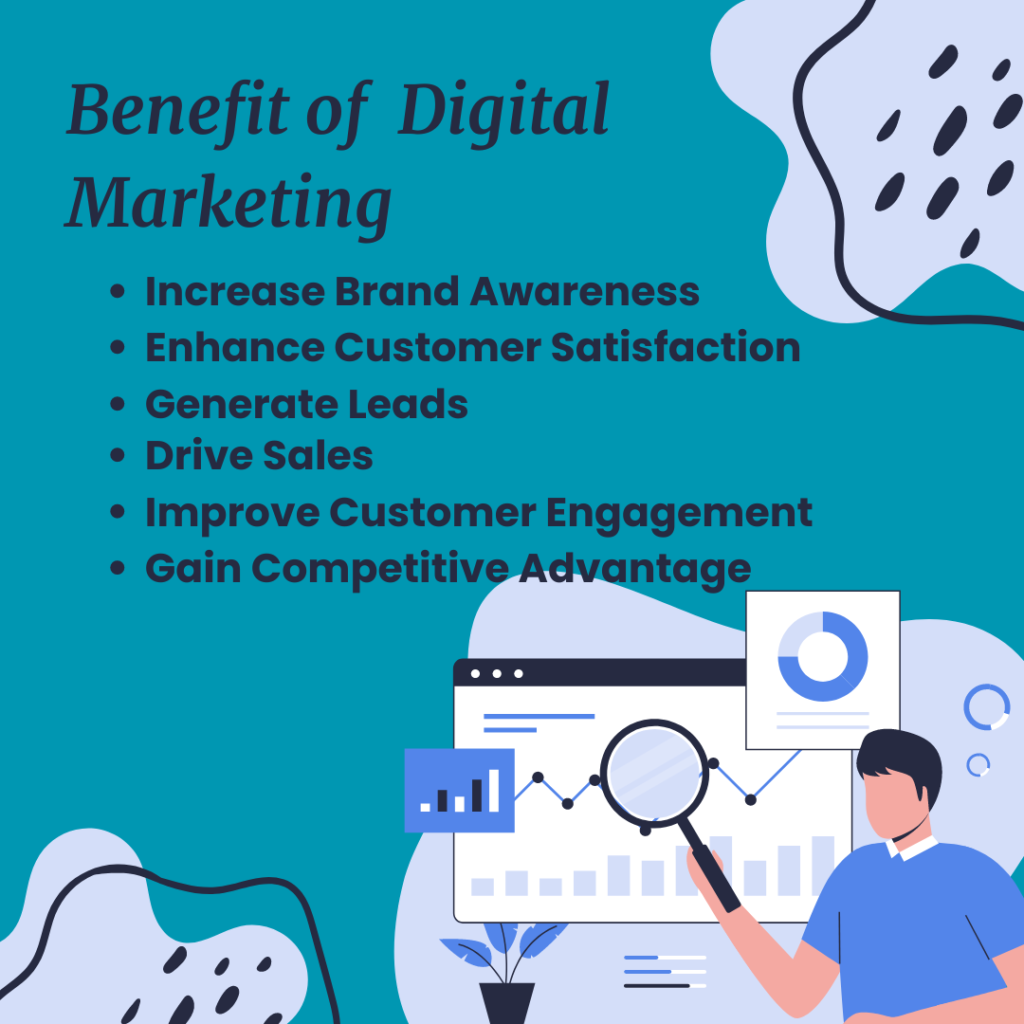
Digital marketing is a catalyst for business growth. By implementing effective digital strategies, you can:
- Increase Brand Awareness: Reach a wider audience and build a strong brand reputation.
- Generate Leads: Attract potential customers and convert them into leads.
- Drive Sales: Increase revenue through targeted marketing campaigns.
- Improve Customer Engagement: Build relationships with customers and foster loyalty.
- Enhance Customer Satisfaction: Provide exceptional customer experiences through digital channels.
- Gain Competitive Advantage: Stay ahead of competitors and differentiate your business.
Remember: digitally is an ongoing process. Continuous optimization, experimentation, and adaptation are key to achieving long-term success.
